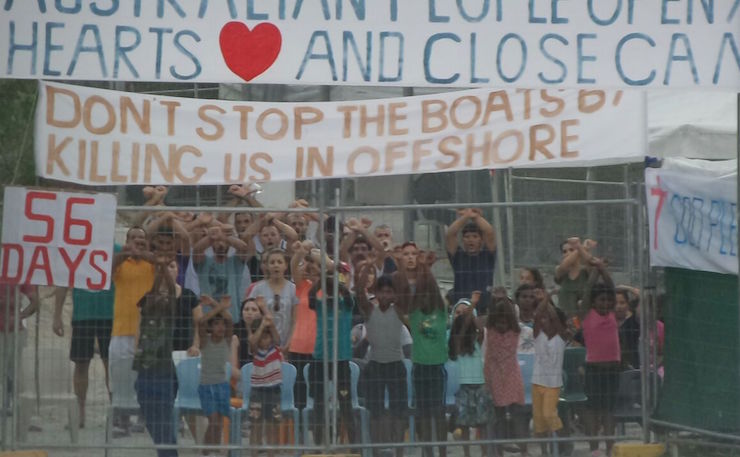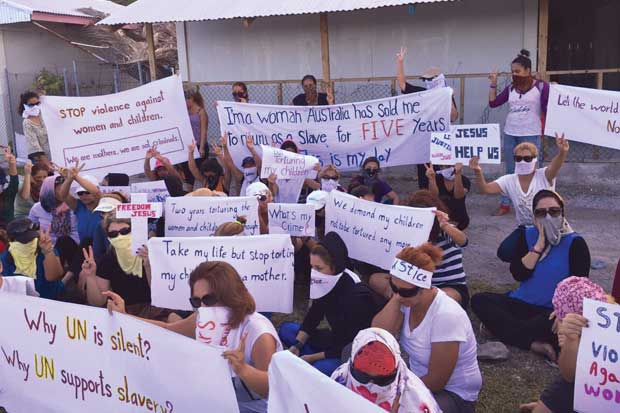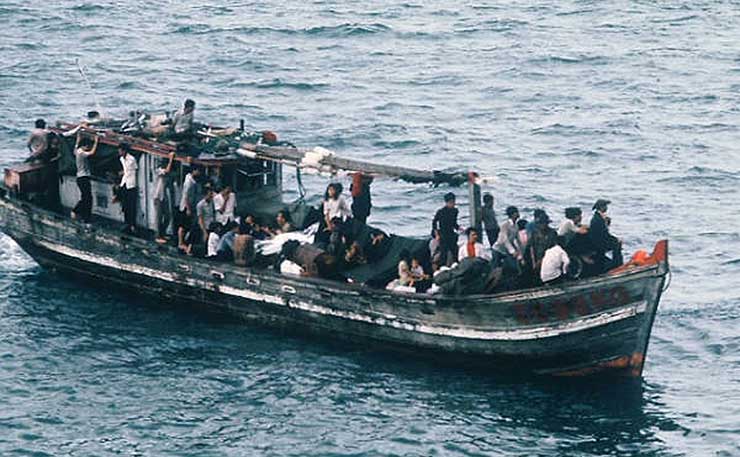Holding government to account for its treatment of refugees is important. But so too is scrutiny of the people who claim to be there for the most vulnerable, write Fadak Alfayadh and Sajidah Shah.
Obstacles have always existed along the path of the refugee advocacy movement, yet we have still exercised resistance in the face of oppression. We have still pushed back, and on a few occasions achieved some positive outcomes.
The disintegration of human rights and the increasing lack of transparency from people in power continue to be proven. And yet we continue to reject populist rhetoric, and we are good at effectuating change, despite the relentless politicization of the Refugee issue. At a grassroots level we remain resilient and committed.
But a major hindrance exists in our pursuit of fairer laws, the humane and dignified treatment of refugees, and a new, honest public narrative. The structural imbalances lie within the refugee advocacy space.
There is a lack of representation of those with lived experiences, and the individuals at the helm of refugee organisations who act largely in self-interest. These are the issues that are in need of urgent reform.
In order to effectively advocate for the rights of refugees and those seeking asylum, we need to have them lead every stage of advocacy, every conversation, every decision-making process. We need to focus on their insights and their right to self-determination. In all our actions, we must also offer genuine support to the struggle and rights of First Nations Peoples, who have sovereignty over this land.

These imbalances are caused by people, and can be reversed by people. We need refugees in decision-making positions within the sector. We need them to be empowered. And we need to pressure those with power to make this a reality.
As exemplified by various social justice movements throughout history, change is driven by those disenfranchised and oppressed. That is necessary for the success and effectiveness of movements.
The American civil rights movement was led by its custodians, by the individuals who had been directly affected by racist political and social structures, and state sanctioned oppression.
The fabric of the movement undeniably gave it legitimacy and effectiveness, and made it the exceptional movement that it was. This example is not reflective of the current refugee movement in Australia.
As it stands, the sector repeatedly undermines our values by yielding to the government’s unjust policies, whilst failing to ensure that decision-makers comply with the requests and concerns of communities who are affected.
For example, we all want people seeking asylum to live outside the bleak confines of detention centres, but our government has pushed us so far from our values that refugee advocates resort to campaigns that appeal to people’s sense of compassion by using children as props. It is as if abuse in detention centres is only abhorrent when it happens to children.

In doing that, we have compromised the value that everyone deserves freedom. If this movement was led by people of refugee background, there would be no devaluing of anyone’s life.
There must be more effort made to empower people of refugee backgrounds for them to be the leaders of the movement. Those with lived experience of seeking asylum fight the structural oppression every day, whether it be inside or outside detention centres.
They possess the skills, drive and competence to be able to fight the oppressive structures. As we have seen repeatedly, people in detention centres constantly rebel against the systems which physically and psychologically confine them. They must be at the centre of all efforts.
For effective social justice and a strong refugee movement, the below points are essential:
1. Indigenous sovereignty
Indigenous Sovereignty must to be recognised as a pillar of the refugee movement. We must recognise that we live on stolen land and that sovereignty was never ceded. First Nations peoples have been struggling against colonial powers since the invaders first arrived here. Their movement is the strongest and we should do everything within our power to support their struggle, and align our values. As refugees and new arrivals, we must recognise that it is the colonial powers which have approved our presence here, and that we are complicit in the continuance of the invasion.
2. Be an ally
To be the sort of ally that refugees and asylum seekers need, you must always consider the space you are occupying and the privilege you bring with you, whether it be racial, class, gender or ability. With these in mind, ask the leaders of the movement where you could be most helpful and always consult before you act. Never allow yourself to be the poster-person for the movement, if you have not been affected by it.
3. Question the status quo
Question the people who currently hold power in refugee organisations, look at NGOs, political movements and religious groups involved, and question what they are doing to empower refugees. Tell them that they should be working on upskilling people of refugee background to have decision-making roles in all major organisations around Australia. Ensure that they are holding decision-makers and governments accountable, and demand transparency in their work.
Donate To New Matilda
New Matilda is a small, independent media outlet. We survive through reader contributions, and never losing a lawsuit. If you got something from this article, giving something back helps us to continue speaking truth to power. Every little bit counts.





